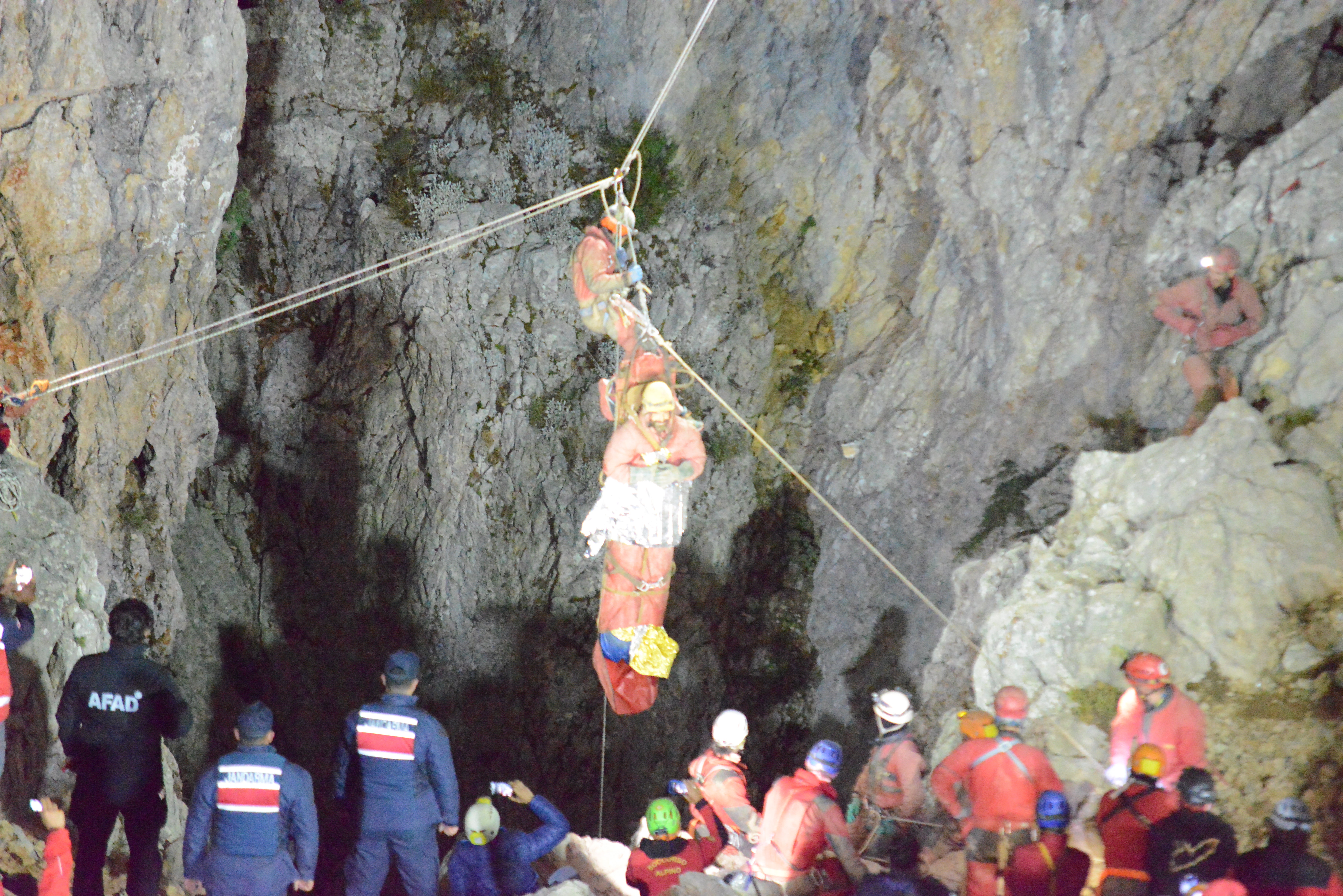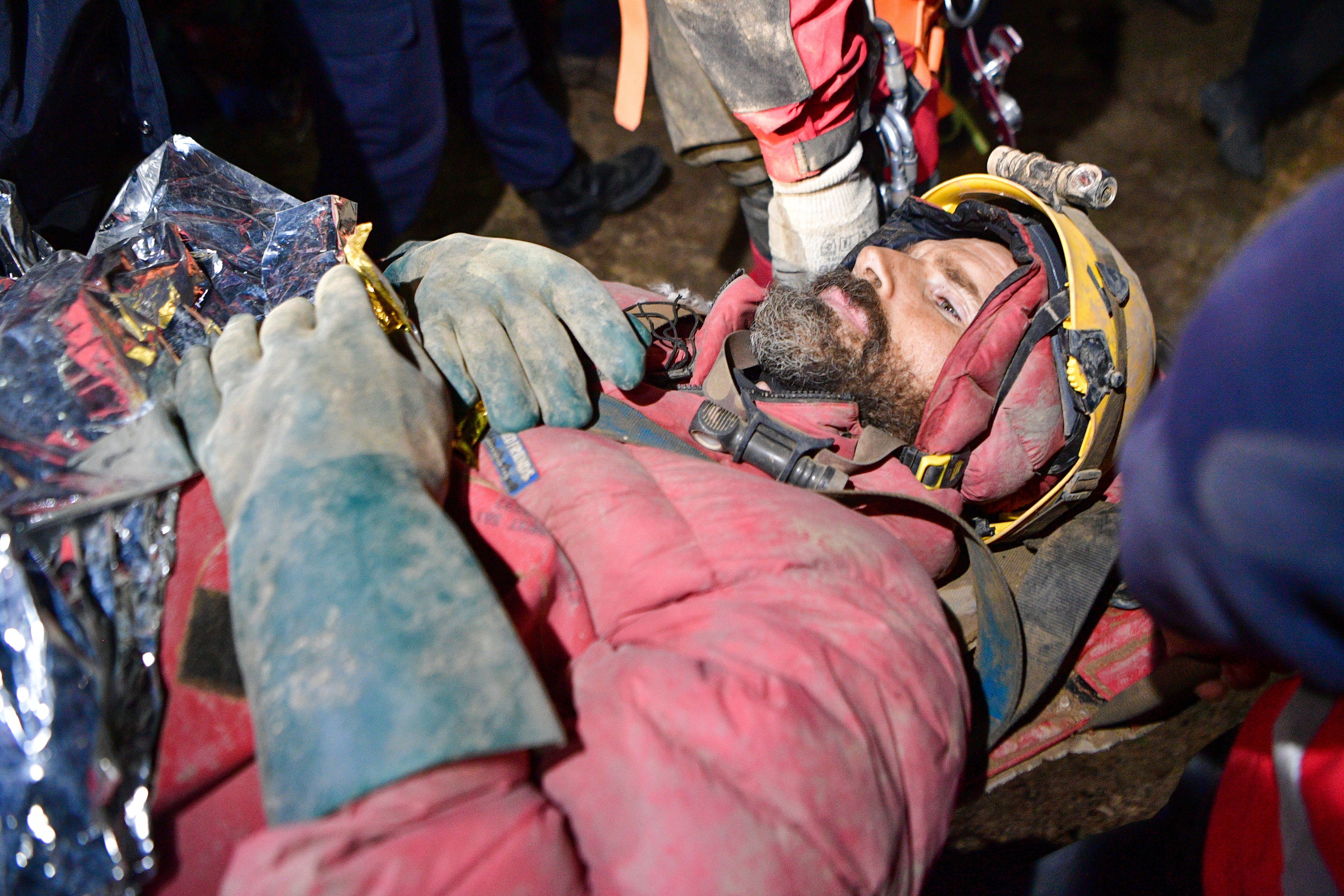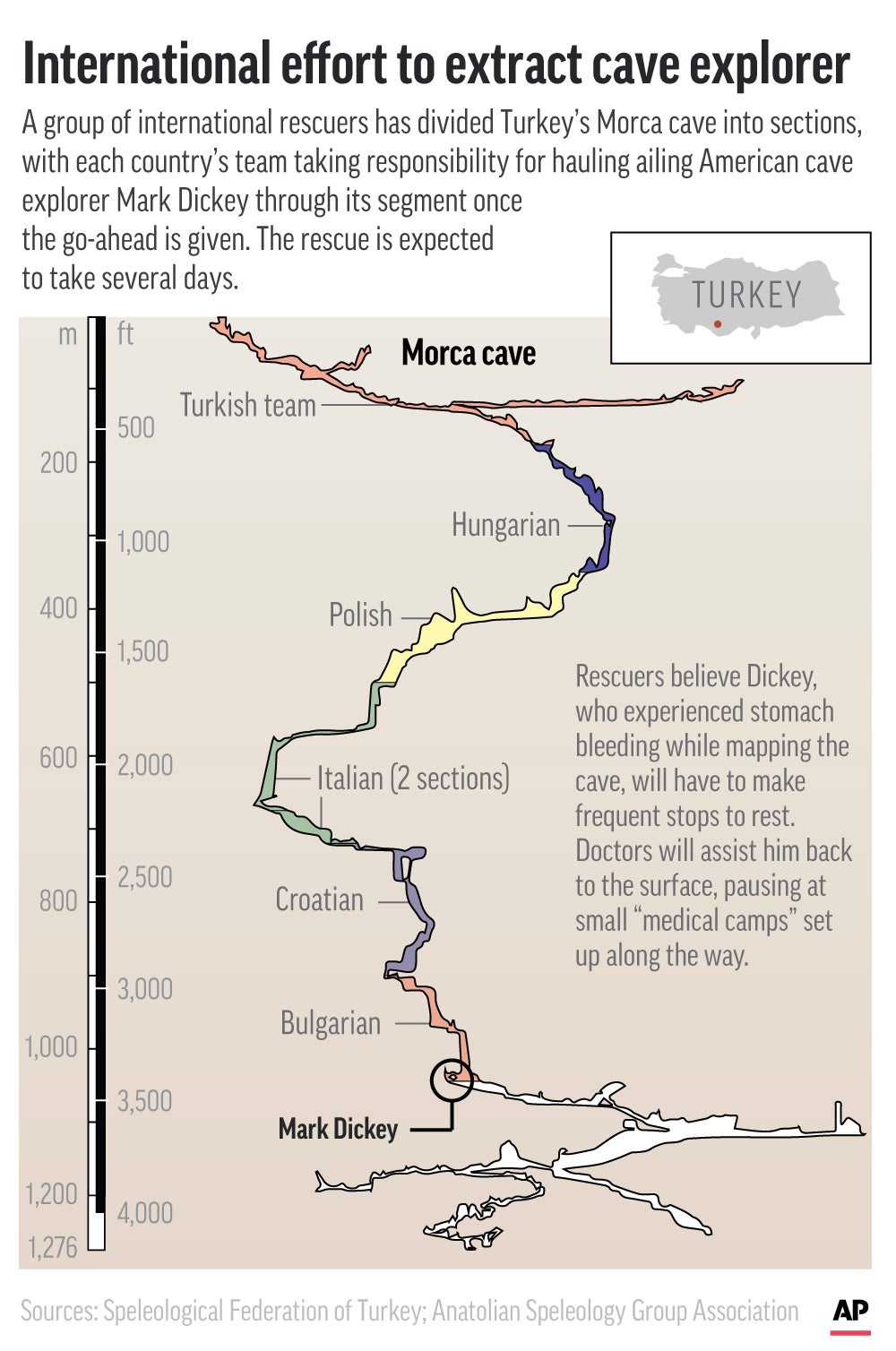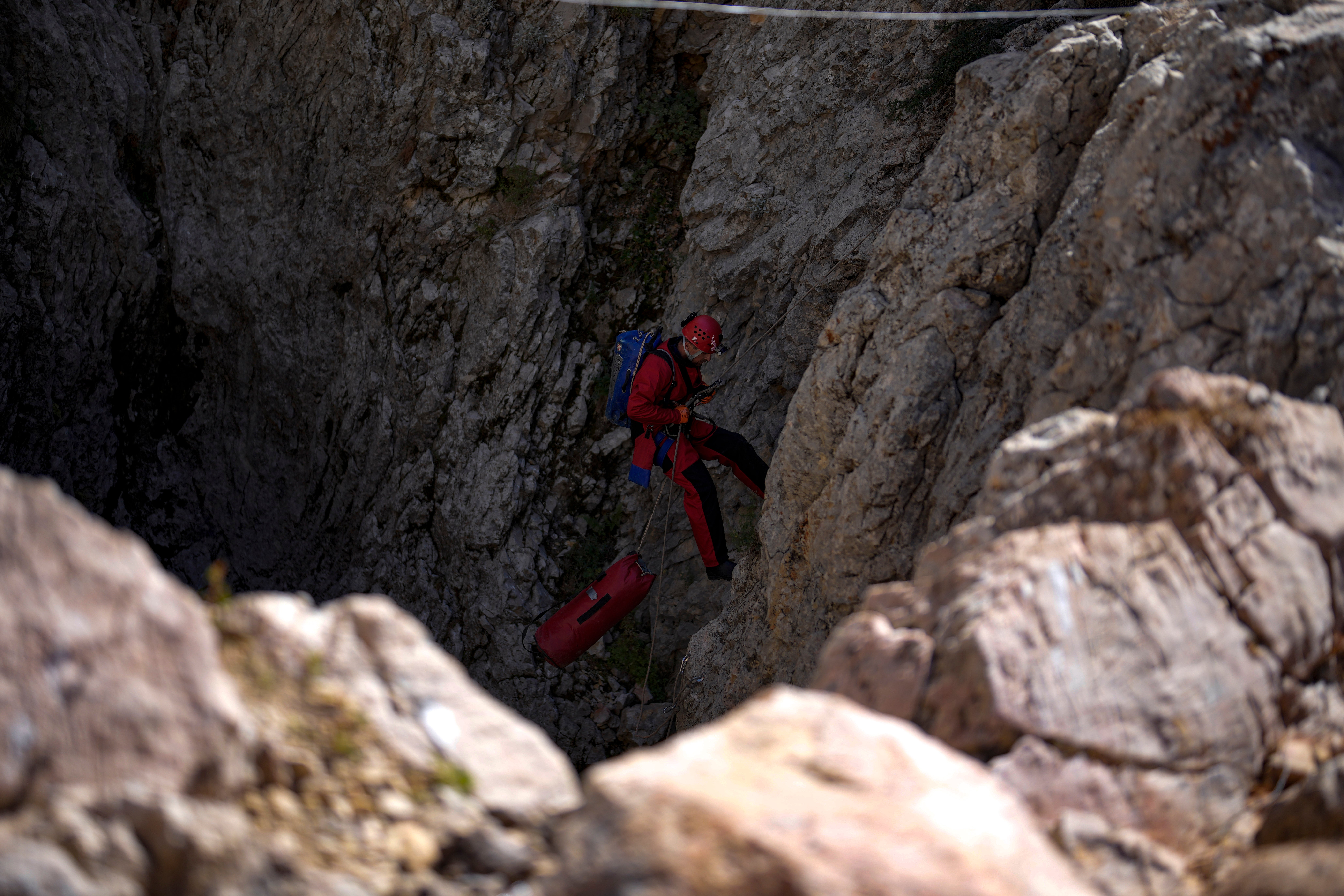Mark Dickey: How I survived – and was rescued – from a 1,200m deep cave in Turkey
Despite nearly dying during eight days trapped underground, Mark Dickey, 41, is keen to go caving again next month
The US explorer Mark Dickey has relived his dramatic rescue from deep inside a Turkish cave this summer, recalling how he was “ready to die”.
Dickey embarked on an expedition to Turkey’s Morca cave on 29 August. At 1,276 metres, it is the third deepest cave in the country.
On day four of the expedition, he suddenly started vomiting and defecating blood. By the fifth day, he was on the brink of death.
“What I can remember is an immediate and sudden increase in exhaustion,” Dickey told The Telegraph. “I had been feeling slightly more lethargic earlier in the day but then suddenly I got really, really tired.
“My consciousness actually felt like it was diminished like it suddenly got harder to think. I needed to vomit. I needed to go to the bathroom. I had hot and cold flushes rapidly, and broke out into a sweat. I felt like I was going to pass out.”
Some 24 hours later, Dickey felt that he wouldn’t survive: “The pulse on my wrist was becoming extremely, extremely difficult to feel, and it reached the point where it was impossible to count. The thought transitioned to ‘I am probably going to die here’.”
Dickey, 41, is a US researcher, search and rescue specialist and caving enthusiast who has ventured to depths of 1,000 metres at least 20 times over the previous two decades.
He previously visited Morca in 2022, and was returning to explore uncharted caverns and passages to judge whether it would be suitable for training novice Turkish cavers.
Mr Dickey’s fiancée and fellow caver Jessica Van Ord was with him when he fell ill and stayed with him until medics arrived and gave him IV fluid and blood.
She eventually climbed out and stayed at a base camp near the mouth of the cave, while working with the 150-strong team of cavers who travelled to Turkey to help bring Mr Dickey out by stretcher.



The volunteers initially worked to stabilise Mr Dickey’s condition before he could be moved. He required a doctor to administer vials of blood to keep him stabilised.
Eventually, his bleeding had stopped and he was able to walk unassisted, according to Cave Rescue Bulgaria.
Then the mission to extricate him began, with rescue teams setting up medical “base camps” at various depths throughout the caves where they could rest and recuperate.
Rescue teams used explosives to blast open parts of the cave to safely extract him. Rock hammers were also used by rescuers to make way for a stretcher to ensure Mr Dickey’s safety during ascent.
It took three days for a number of rescue teams working in relay to extract him, navigating steep cliffs and narrow passages.


At the surface, Dickey was airlifted to a hospital in Ankara, the Turkish capital, where tests identified his illness as gastrointestinal bleeding triggered by a lesion in his intestine, the cause of which remains unknown.
Upon his rescue, Dickey said that it was “amazing to be above ground again”, as he was taken to a medical tent for examination before he could be transferred to hospital after his ordeal.
He thanked the rescue teams and Turkish government for bringing him to safety and said they had “saved my life, literally no questions asked”.
A New Jersey native and current resident of Croton-on-Hudson, New York, Dickey is a highly-trained caver, and cave rescuer himself and is well-known in the international speleological (cave expert) community, according to the European Cave Rescue Association (ECRA).
His resume of cave explorations and expert status is endless: secretary of the ECRA medical committee, lead instructor for Caving Academy, a US-based organisation that prepares other cavers for exploration, and a national instructor for the National Cave Rescue Commission.
Since his discharge from the hospital, Dickey has said that he is keen to go caving as soon as next month, despite the risk his illness might strike again.
“Caving is one of the final frontiers of exploration,” he said. “We are pushing the exploration of the world in one of the few places where humans have never been.
“Is there anything to do differently? No. I can make sure I have no pre-existing medical condition and as long as I have no increased risks of recurrence then I’ll go caving.”
Join our commenting forum
Join thought-provoking conversations, follow other Independent readers and see their replies
Comments




Bookmark popover
Removed from bookmarks